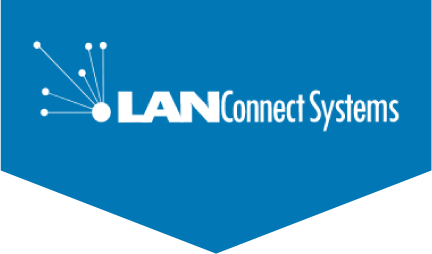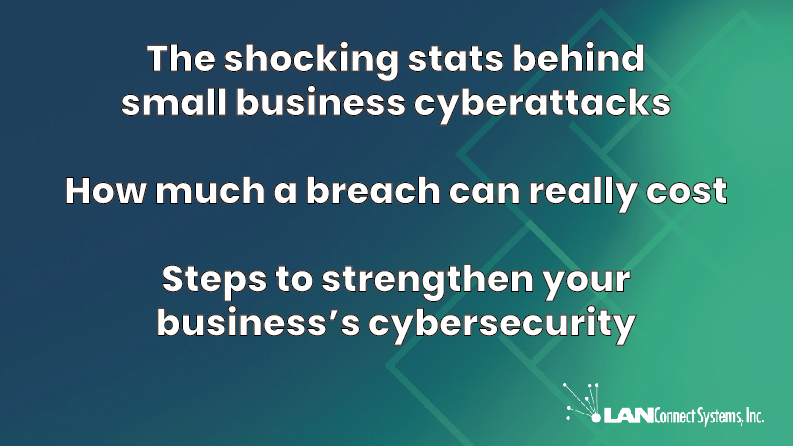In today’s digital landscape, data privacy compliance is more crucial than ever for law firms. Handling sensitive client information, legal documents, and privileged communications requires strict adherence to data privacy laws and regulations. Non-compliance can lead to severe penalties, loss of client trust, and reputational damage. Understanding the key aspects of data privacy compliance and implementing robust measures is essential for safeguarding your legal practice. Here, we explore the critical components of data privacy compliance for law firms and how LANConnect Systems can help.
Why Data Privacy Compliance Matters for Law Firms
1. Handling Sensitive Client Information
Law firms deal with vast amounts of sensitive data, including personal client details, financial information, and confidential legal documents. Ensuring the privacy and security of this data is paramount to maintaining client trust and fulfilling legal obligations.
2. Regulatory Requirements
Various data privacy regulations, such as the General Data Protection Regulation (GDPR), the California Consumer Privacy Act (CCPA), and the Health Insurance Portability and Accountability Act (HIPAA), impose strict requirements on how law firms handle and protect personal data. Non-compliance can result in hefty fines and legal repercussions.
3. Maintaining Client Trust and Reputation
Clients expect their legal representatives to keep their information confidential. Data breaches and non-compliance with privacy regulations can erode this trust, potentially leading to client loss and damage to the firm’s reputation.
Key Data Privacy Regulations Affecting Law Firms
1. General Data Protection Regulation (GDPR)
The GDPR applies to any organization that processes the personal data of individuals in the European Union (EU). Key requirements include obtaining explicit consent for data processing, implementing data protection measures, and reporting data breaches within 72 hours.
2. California Consumer Privacy Act (CCPA)
The CCPA provides California residents with rights regarding their personal data, including the right to access, delete, and opt-out of the sale of their data. Law firms handling the data of California residents must comply with these requirements.
3. Health Insurance Portability and Accountability Act (HIPAA)
HIPAA sets standards for protecting sensitive patient information in the healthcare industry. Law firms handling protected health information (PHI) must ensure compliance with HIPAA’s privacy and security rules.
Best Practices for Data Privacy Compliance
1. Conduct Data Privacy Audits
Regular data privacy audits help identify potential weaknesses in your data protection practices. Conduct comprehensive audits to evaluate your current compliance posture, identify gaps, and implement necessary improvements. Consider engaging a professional cybersecurity firm like LANConnect Systems to perform these audits for a thorough assessment.
2. Implement Data Protection Policies
Establish and enforce robust data protection policies that outline how your firm collects, processes, and protects personal data. Ensure that all employees are aware of these policies and receive regular training on data privacy best practices.
3. Obtain Explicit Consent for Data Processing
Ensure that you obtain explicit consent from clients before collecting and processing their personal data. Clearly communicate how their data will be used and provide options for them to opt-out of certain data processing activities.
4. Encrypt Sensitive Data
Implement strong encryption measures to protect sensitive data both in transit and at rest. Encryption ensures that even if data is intercepted or accessed without authorization, it remains unreadable and secure.
5. Regularly Update Security Measures
Keep your software, firmware, and operating systems up to date to protect against vulnerabilities that cybercriminals can exploit. Regularly applying updates and patches reduces the risk of data breaches and enhances your overall security posture.
6. Train Employees on Data Privacy Best Practices
Human error is one of the leading causes of data breaches. Provide regular training sessions for your employees on data privacy best practices, such as recognizing phishing emails, using strong passwords, and adhering to company security policies.
7. Implement Data Breach Response Plans
Develop and regularly update a data breach response plan that outlines the steps to take in the event of a data breach. Ensure that your plan includes procedures for containing the breach, notifying affected individuals, and reporting the breach to regulatory authorities.
How LANConnect Systems Can Help
At LANConnect Systems, we specialize in providing tailored cybersecurity and data privacy solutions for law firms. Our services include:
- Data Privacy Audits: Comprehensive audits to assess your firm’s compliance with data privacy regulations.
- Data Protection Policies: Assistance in developing and implementing robust data protection policies.
- Encryption Solutions: Advanced encryption measures to safeguard sensitive data.
- Employee Training: Training programs to educate your staff on data privacy best practices.
- Data Breach Response Planning: Development and testing of data breach response plans to ensure readiness.
Contact Us
Ensure your law firm is compliant with data privacy regulations and protected against cyber threats with the help of LANConnect Systems. Contact us today for a consultation and learn how our data privacy solutions can benefit your legal practice.
Address: 186 Grove Street, Franklin, MA 02038
Phone: 888-907-6080
Data privacy compliance is not just a legal requirement; it’s essential for maintaining client trust and protecting your law firm’s reputation. With LANConnect Systems, you can ensure that your firm is well-equipped to handle the complexities of data privacy regulations and safeguard sensitive client information.







